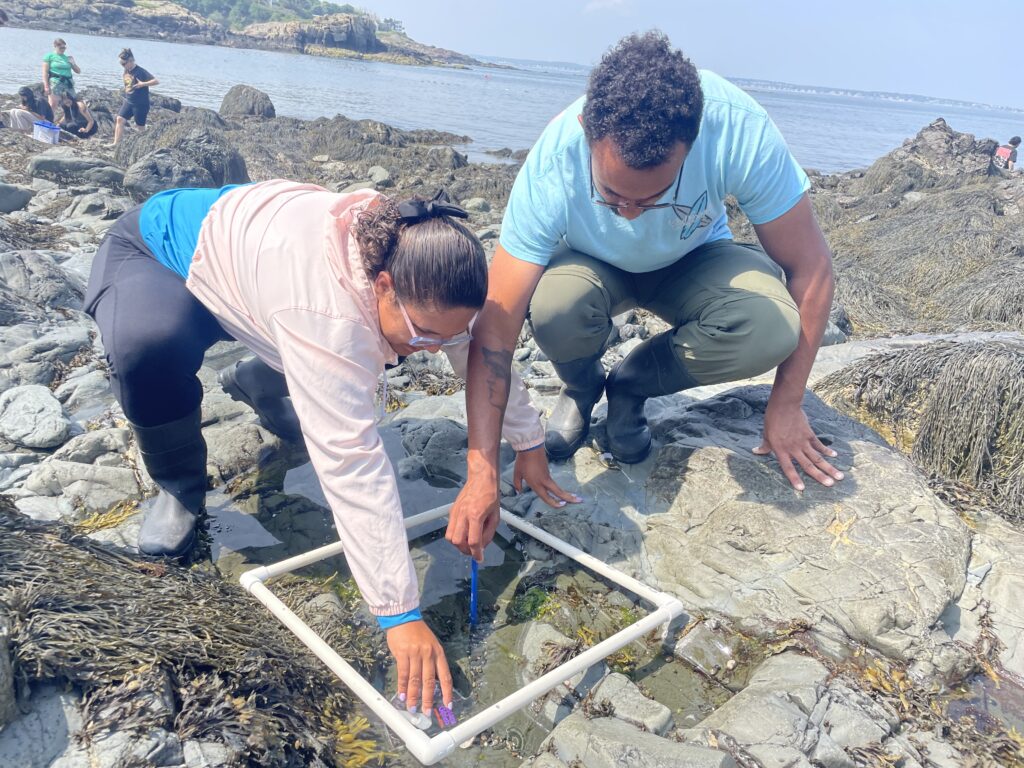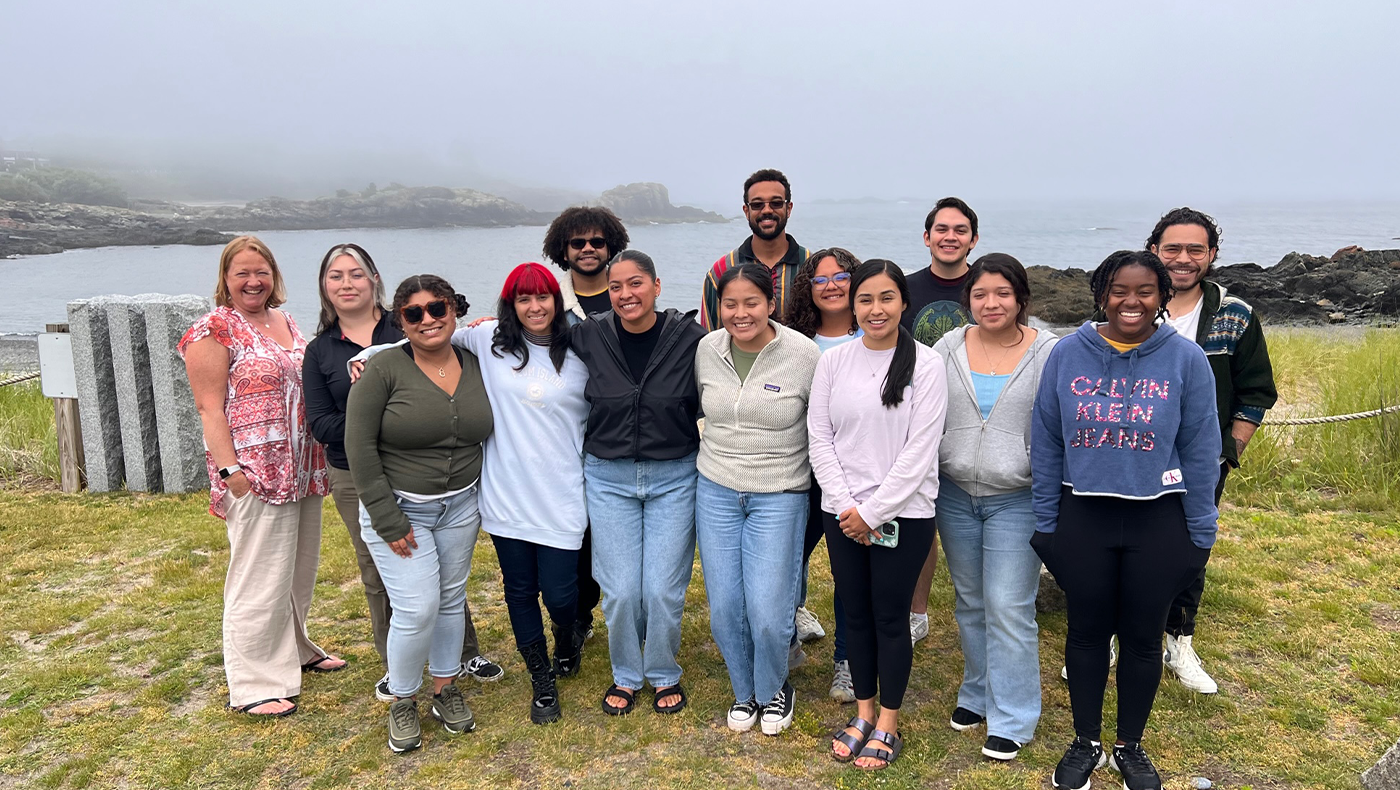
Elitza, recently graduated with a BS in Coastal Marine Biology from the University of Puerto Rico, and Dillon, recently graduated with a BS in Ocean Sciences from University of Georgia, record abiotic measurements in the intertidal during a brief field site visit between BEACHES workshops.
I was not considering grad school before this program because as time went on, I was afraid I was not good enough and believing it was too much work. Now, having completed the program, I feel more confident not just in applying to grad school but in myself. I can do anything if I have the right support system. I feel like I do now.
2023 BEACHES participant
The BEACHES program, hosted by Northeastern’s Department of Marine and Environmental Sciences (MES), brought an incredible cohort of student researchers to the Nahant Campus last week for an immersive discussion about what their next steps will be. BEACHES (Bridging Each Applicant’s Chances for Higher Ed Success) has been held for several years at Northeastern. After a COVID pause, the program resumed last June with a cohort of nine students, growing to 13 this year, with dozens more in the competitive applicant pool.
BEACHES is an all-expense paid three-day boot camp with the goal of demystifying the graduate school application process. The program is supported by the Department of Marine and Environmental Sciences — through continued funding secured from NSF (DEB 2203322) last year by Drs. Jen Bowen and Randall Hughes and through a COS Faculty Excellence Award in EDIJ awarded to Bowen.
Participants met with Northeastern faculty to discuss the ‘nuts and bolts’ of graduate school applications and process – navigating interviews, building CVs, finding the right mentors.The program particularly aims to provide these resources to young scientists from marginalized backgrounds who might not otherwise have access to this kind of information or to mentors who could guide or advise as they navigate the process.
Professor Jen Bowen explains, “There are so many talented students all around the country who have no idea what graduate school is about and whether it is the right path for them. It is really important for these students to meet and interact with the amazing graduate students, postdocs and faculty in our program because it allows these students to see themselves in these roles and to recognize that if we can do it, so can they. It is a tremendous confidence builder that hopefully sets them on the right graduate path to help them reach their goals.
Between workshops and mentor meetings, participants explored Boston and Nahant campuses and even explored the rocky shore intertidal with Marine Science Center staff and graduate students.
Participant Jeanne Smith travelled from Louisiana to attend the program. She shared that BEACHES stood out to her in her search for next steps because the application made it clear that “[the organizers] didn’t want to know just how you were as a student, but also as a scientist and human. I had not applied to graduate school, although I was considering it for my future. This sounded like a well-rounded program.”
Jeanne said she appreciated the guidance on “the entire step-by-step process of applying to graduate school.” She now plans to attend the Louisiana State LAGNiAppE program, which is a one-year research training for recent college graduates interested in advancing their knowledge and research skills in evolutionary biology, while also pursuing her interest in science communication.
Jeanne added, “This program was truly a blessing and a trip of a lifetime. It gave me the reassurance I needed to start working on a dream I have had for a while.”
The program team at MES looks forward to following the successes of BEACHES participants and to meeting future cohorts of scientists.

